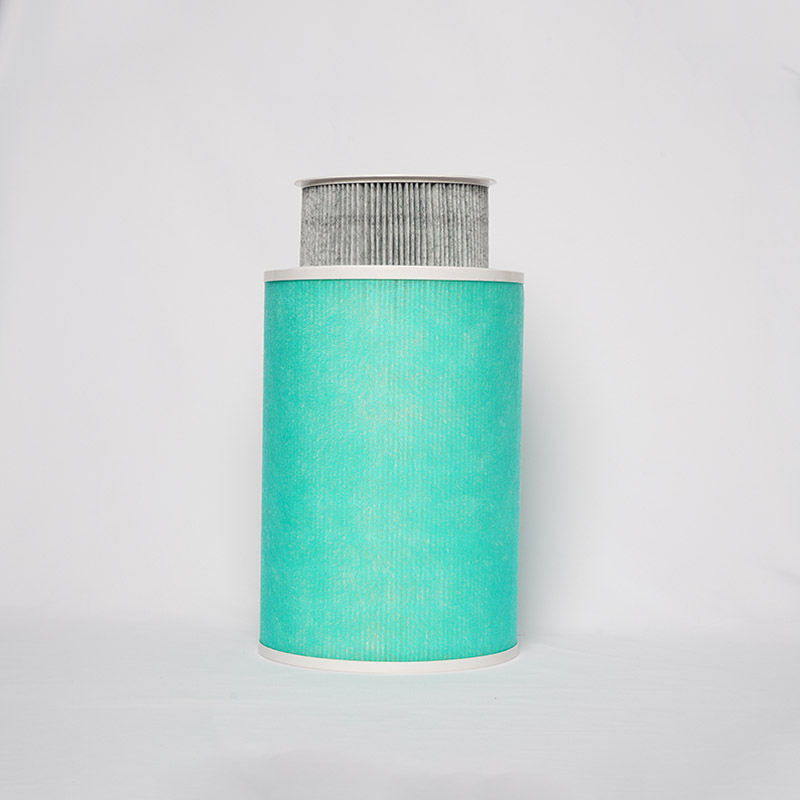Indoor air quality has become a significant concern for many homeowners, particularly due to its direct impact on health and well-being. One of the most effective tools in improving indoor air quality is the HEPA (High-Efficiency Particulate Air) filter. Renowned for its ability to capture microscopic particles, HEPA Filters play a crucial role in mitigating allergens and promoting a healthier living environment. This article explores how HEPA Filters contribute to combating allergens and improving indoor air quality.

Understanding HEPA Filters
HEPA filters are designed to trap particles as small as 0.3 microns with an efficiency of 99.97%. This high level of filtration ensures that even the smallest particles, such as dust mites, pollen, and pet dander, are effectively removed from the air. The filter’s structure consists of a dense network of fibers that trap particles through various mechanisms, including interception, impaction, and diffusion. This makes HEPA filters highly effective at purifying the air and reducing the presence of allergens.
Impact on Allergens
Allergens are substances that can trigger allergic reactions, including sneezing, coughing, itchy eyes, and asthma attacks. Common indoor allergens include:
Pollen: Often carried indoors through open windows or on clothing.
Dust Mites: Microscopic creatures that thrive in dust and are prevalent in bedding, carpets, and upholstery.
Pet Dander: Tiny flakes of skin shed by pets, which can become airborne and trigger allergies.
Mold Spores: Produced by mold and mildew, which can grow in damp areas of the home.
HEPA filters are highly effective at capturing these allergens, significantly reducing their concentration in the air. By removing these particles from the indoor environment, HEPA filters help to alleviate allergy symptoms and improve overall respiratory health.
HEPA Filters and Asthma Relief
For individuals with asthma, indoor air quality is especially critical. Asthma attacks can be triggered by airborne allergens, which cause inflammation and constriction of the airways. HEPA filters help to reduce asthma triggers by:
Reducing Allergens: By capturing allergens that can irritate the airways, HEPA filters minimize the risk of asthma exacerbations.
Improving Air Quality: Cleaner air reduces the overall burden on the respiratory system, which can lead to fewer asthma symptoms and attacks.
Studies have shown that using HEPA filters in homes can lead to significant improvements in asthma control and a reduction in the frequency of asthma-related symptoms.
HEPA Filters in Combating Seasonal Allergies
Seasonal allergies, often triggered by outdoor pollen, can be exacerbated by indoor allergens. HEPA filters help manage these allergies by:
Reducing Indoor Pollen Levels: By capturing pollen that enters the home, HEPA filters help prevent it from circulating in the indoor air.
Improving Sleep Quality: Reducing allergens in the bedroom can lead to better sleep and fewer allergy-related disturbances at night.
Using HEPA filters during peak pollen seasons can provide relief to allergy sufferers and help maintain a more comfortable indoor environment.
Choosing the Right HEPA Filter
Selecting the right HEPA filter involves considering several factors:
Filter Size and Compatibility: Ensure the filter fits your air purifier or HVAC system.
Filter Type: Some HEPA filters come with additional layers, such as activated carbon, to remove odors and volatile organic compounds (VOCs).
Maintenance and Replacement: Regularly replacing HEPA filters is essential to maintain their effectiveness. Follow the manufacturer’s recommendations for replacement intervals.
Maintaining Indoor Air Quality
While HEPA filters are highly effective, they are just one component of maintaining good indoor air quality. Other practices include:
Regular Cleaning: Dust and clean your home frequently to reduce the accumulation of allergens.
Controlling Humidity: Use dehumidifiers to prevent mold growth and dust mite proliferation.
Ventilation: Ensure proper ventilation to reduce indoor air pollution and bring in fresh air.
Conclusion
HEPA filters play a vital role in improving indoor air quality by effectively capturing allergens and other airborne particles. Their ability to reduce the presence of allergens, including pollen, dust mites, pet dander, and mold spores, makes them an essential tool for individuals with allergies or asthma. By integrating HEPA filters into your home environment, along with other air quality maintenance practices, you can create a healthier living space and alleviate allergy symptoms, leading to improved overall well-being.





